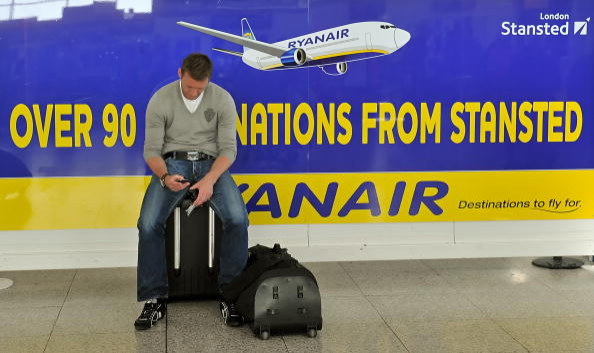Competition authority maintains Ryanair must sell off 24.8% of Aer Lingus stake

Ryanair must reduce its 29.8% stake in Aer Lingus to 5%, the UK competition watchdog ruled on Thursday paving the way for British Airways owner IAG to take over the smaller Irish carrier.
"It's not good for competition when one company holds such an influence over the future of one of its major competitors," said Simon Polito, chairman of the Ryanair/Aer Lingus inquiry group at the UK's Competition and Markets Authority (CMA).
British-Spanish multinational airline holding company IAG has been bidding to take over Aer Lingus which until now has been at the mercy of Ryanair.
"IAG has said that it would not be interested in acquiring any airline with a significant minority investor," Polito added.
In February 2015, Ryanair had requested that the UK authority re-examine its previous decision to force the airline to sell its shares. The appeal followed a Court of Appeal judgement that dismissed Ryanair's legal challenge to the move.
The authority's decision is "manifestly wrong," said Ryanair spokesperson Robin Kiely. He noted that the authority's original ruling maintained that the company's shareholding would prevent other airlines from buying Aer Lingus.
"The recent offers by IAG for Aer Lingus totally disprove and undermine the bogus theories and invented evidence on which the CMA based its untenable divestment ruling," Kiely said.
News of the decision prompted analysts at Jefferies to upgrade IAG to a "buy" rating. They predict its shares could rise to 700.00p from its current 522.50p. The key takeaway, they said, would lead the takeover bid to consummation.
In a statement Jefferies predicts a cash windfall of €400m (£291m, $450m) for Ryanair shareholders is also likely when the sell-off goes ahead.
Nevertheless, Ryanair's Kiely points out that Ryanair has told its lawyers to appeal the decision to the Competition Appeal Tribunal "given that it is factually unsustainable and legally flawed".
The company is also seeking to appeal the authority's original 2013 decision to the UK Supreme Court.
© Copyright IBTimes 2025. All rights reserved.






















